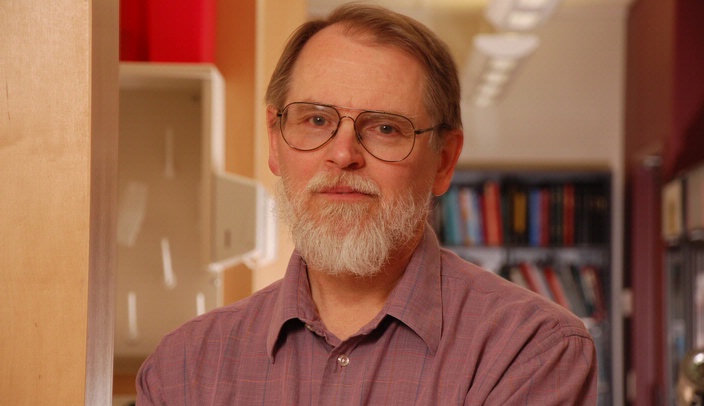To Keith Johnson, Ph.D., director of the Nebraska Center for Cellular Signaling (NCCS) in the College of Dentistry, reaching phase III status, with a $4.9 million grant renewal, means the opportunity to turn a corner.
Jeffrey Payne, D.D.S., the College of Dentistry’s associate dean for research, said the phase III status and renewal of the National Institutes of Health (NIH) grant “will support collaborative research across UNMC colleges and departments in the area of cellular signaling and will facilitate the NCCS’ trajectory as a self-sustaining center.”
Through its first two phases, the COBRE also placed emphasis on development of promising young faculty – and Steven Caplan, Ph.D., Jixin Dong, Ph.D., and Aimin Peng, Ph.D., were among those who used NCCS support as a springboard to their first independent NIH R01-type funding.
In its phase III inception, the COBRE will now support projects with co-principal investigators of more or less equal expertise in different areas. The cross-multidisciplinary college collaboration is designed to help keep the momentum going, even after NIH funding eventually stops.
Additionally, the COBRE’s momentum was a factor in helping secure nearly $700,000 in funding from a Nebraska Research Initiative (NRI) grant in order for UNMC to acquire a new state-of-the-art super-resolution microscope. This microscope, which allows researchers to see things with up to 10 times greater resolution, offers tremendous opportunity for those who study cellular signaling. (See story page 20.)
“It is a potential game-changer for our COBRE,” said Dr. Johnson, who also works in the oral biology department. “What we look at is cell-cell adhesion events that happen at the cell surface.” And now NCCS investigators can see them like never before.
The program began in 2003, shepherded through Phases I and II by the late Margaret Wheelock, Ph.D. The three phases have totaled $25 million in grant money. The COBRE is currently funded through 2018, making the College of Dentistry a national leader in the study of cellular signaling in cancer.
